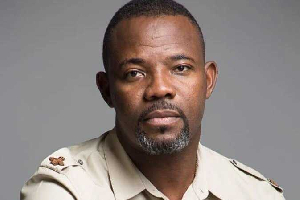A former Editor of the Ghana News Agency (GNA), Mr. Ansah Barnor, on Thursday told the National Reconciliation Commission (NRC) that he was "forced out" from his employment and prayed the Commission for re-instatement. Mr. Barnor said life had become very difficult for him for some time now, and his efforts to go back to work as a professional journalist with the GNA, the Daily Graphic and the Ghanaian Times newspapers had been fruitless.
Also, moves he had made to a number of Government functionaries, including Mr. Jake Obetsebi-Lamptey, Minister for Tourism and Modernisation of the Capital City; Mr. Dan Botwe, General Secretary of the New Patriotic Party, Ms Elizabeth Ohene, Minister of Education in Charge of Tertiary Education and Mr. Samuel Odoi-Sykes, Ghana's High Commissioner to Canada, to help him find job had not been successful.
Mr. Barnor said he was now resident at Chorkor in Accra and on many occasions had to walk to Mr. Obetsebi-Lamptey's office in pursuit of a promised job. However, the Minister's Secretary often told him to "keep my fingers crossed."
Mr Barnor broke down and shed tears, when he said it was sorrowful when after he had returned from many of his fruitless job hunts, his little son among his three children, often asked him of the outcome. His sobs drew one of the counsellors to his side, and for the first time at the hearings of the Commission, the Most Reverend Charles Palmer Buckle, Maulvi Wahab Adam and Professor Henrietta Mesah-Bonsu, stepped down from their desk to offer a hand of comfort. The tears and moments of quietness punctuated the rest of Mr. Barnor's narration.
Mr Barnor said he was a correspondent for West Africa Magazine and attended the proceedings of the Special Investigations Board (SIB) set up to investigate the murder of three High Court Judges and a retired army major in 1982.
However, the only story he filed for the Magazine was on the inauguration of the Board. He said towards the end of the proceedings of the Board, the Voice of America (VOA) filed a report on the proceedings that implicated Captain Kojo Tsikata in the murder of the three High Court Judges and the retired army Major. Mr Barnor denied ever filing that story.
He said the Chairman of the Agency's Workers' Defence Committee (WDC), invited him to the office of the then Union Chairman, the Mr P. Otchere and told him that he (Barnor) had been invited to one of the Public Tribunals for revealing state secrets, but they had interceded on his behalf.
Mr Barnor said the WDC Chairman asked him to go on transfer to Cape Coast, to which he obliged. He said the then Regional Manager told him that he had not received any information from the Head Office and there was no accommodation for him. He, therefore, returned to Accra after sleeping for one week at the Cape Coast Office.
Back in Accra, Mr Barnor said he insisted on his innocence on the VOA report to the late Mr Kwao Lotsu and Mr Patrick Quaye, then Management members of the GNA, but he was given the option to go back on transfer or resign.
Mr Barnor said he resigned, stating undue pressure as his reason, but the General Manager got furious and nearly slapped him for the reason, he stated. Mr Barnor said he was about making his mark in journalism at the time of his exit. He later went to the US where he stayed and worked for four years with someone's Green Card but the fellow later reported him after which he returned to Ghana. Mr Barnor spoke of his skills in journalism, receiving commendation from internationally acclaimed editors.
However, he was finding it difficult to practice even as a freelance journalist because the GNA would not let him have access to its files to select stories for leads. The Most Rev Palmer-Buckle, who is also the Commissioner on the Sub-Commission examining the role of the Media the human rights aberrations, said Mr Barnor had a right to battle and pursue any infractions on his rights.
He, however, told Mr Barnor not to be fixated and incapacitated by whether the GNA would take him back or not. He should go into research, write his memoirs or use other channels in journalism to practise his job.
General News of Friday, 23 May 2003
Source:
















